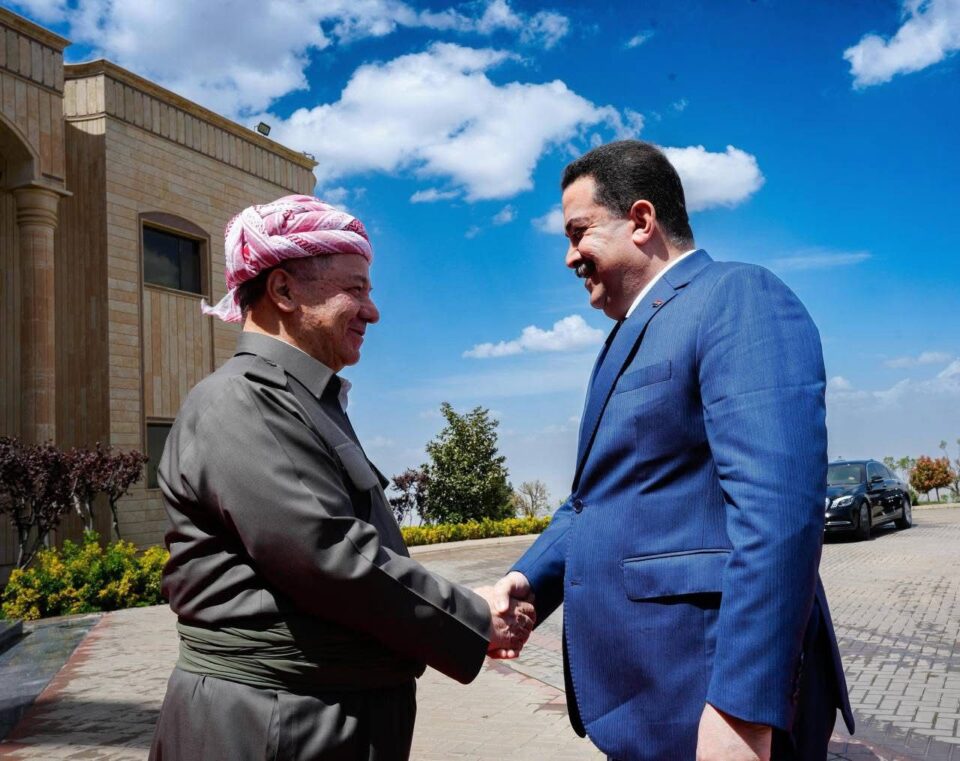Amid High-Level Engagements: U.S. Secretary of State’s Call and Iraqi Prime Minister’s Visit Signal Renewed Focus on Erbil
The Kurdistan Region witnessed two major diplomatic developments in the span of one week, positioning it once again as a key player in regional and international politics. A phone call between U.S. Secretary of State Marco Rubio and Kurdistan Region Prime Minister Masrour Barzani, followed by Iraqi Prime Minister Mohammed Shia Al-Sudani’s official visit to Erbil, highlighted the region’s growing political relevance.
On Friday, April 11, the U.S. Department of State issued a statement confirming a phone conversation between Secretary Rubio and Prime Minister Barzani. The two leaders underscored the urgent need to resume oil exports from the Kurdistan Region, signaling renewed international attention on the issue.
Just a day later, Prime Minister Al-Sudani arrived in Erbil, where he met with both Prime Minister Masrour Barzani and President Masoud Barzani. Following the meetings, President Masoud Barzani’s office released a statement noting that discussions focused on the current political landscape and recent regional developments. Both sides stressed the importance of cooperation among Iraqi political factions to address national challenges and resolve ongoing disputes.
A corresponding statement from the Office of the Iraqi Prime Minister emphasized the government’s commitment to national partnership and collaboration with political forces. The discussions, the statement noted, included strategies to strengthen Iraq’s capacity to handle internal and external pressures and to improve coordination between the federal government and the Kurdistan Regional Government (KRG).
Commenting on these events, Rizgar Anwar, a senior member of the Kurdistan Democratic Party (KDP), told Kurdish Globe: “Erbil has once again become a central platform for political and diplomatic dialogue. The U.S. is applying strong pressure on Baghdad to resume oil exports from Kurdistan, as Kurdish oil plays a critical role in addressing global market needs. Kurdistan is open to dialogue and ready to move forward, which is why Prime Minister Al-Sudani came to Erbil—to directly address these longstanding issues.”
Anwar also highlighted the Kurdistan Region’s broader role in promoting regional stability: “The region has long contributed to mediation efforts, such as facilitating the peace process in Turkey and efforts to unify the Kurdish factions in Syria. Additionally, Kurdistan has worked to prevent Iraq’s entanglement in regional conflicts.”
Dr. Nahla Effendi, a member of Iraq’s Council of Representatives, also spoke to Kurdish Globe, expressing optimism over the recent diplomatic efforts. “The April 11 phone call between Prime Minister Barzani and Secretary Rubio marks a hopeful turning point,” she said. “It’s clear that the United States is actively supporting the resumption of oil exports through Turkey’s Ceyhan port, which is crucial for the region.”
Effendi praised Prime Minister Barzani’s continued commitment to resolving the oil export issue. “He has consistently championed this cause, and his efforts are expected to yield tangible results soon. We urge the Iraqi government to recognize the economic losses incurred by delays and to build investor confidence, particularly in institutions like APICORP, to accelerate progress.”
As momentum builds in both diplomatic and domestic circles, observers see the latest developments as an indication of the Kurdistan Region’s enduring influence in shaping Iraq’s political and economic future.

